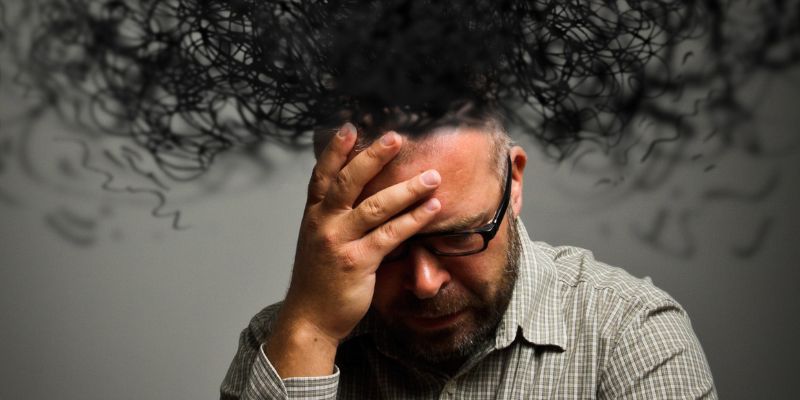It's natural to have occasional doubts about your skills and capabilities. But there is an issue with it if you find that you are doing it all the time, to the point that it restricts your options in your professional life or any other aspect of your life.
It's not unusual for many individuals, even those in powerful positions, to struggle with feelings of inadequacy. It's rather typical. Yet, the severity of this problem may be more than you initially anticipated.
Constantly feeling that you are less than others may be exhausting and frustrating, and it can affect your mental, emotional, and even physical health. Find out for sure if you have this ailment by following these steps if you suspect that you might have it.

What Is Inferiority Complex?
A profound feeling of inadequacy, uncertainty, weakness, and a lack of confidence or resources (either physical or psychological) are all hallmarks of what is known as an inferiority complex. In most cases, a person suffering from an inferiority complex consistently underrates their abilities and lacks self-confidence.
They constantly tend to focus solely on defects and shortcomings. These individuals are terrified of receiving negative feedback and being evaluated by others. An inferiority complex makes it difficult to live a rewarding life full of joy. People can only focus on their bad feelings and inaccurate impressions of who they are.
It can significantly impact a person's social life, work life, and interactions with others. Individuals who struggle with an inferiority complex do not appreciate themselves and continually evaluate themselves about others. They are always plagued by uncertainty and self-doubt due to their ongoing efforts to meet the standards they have set for themselves.
Types Of Inferiority Complex
Primary Inferiority
Infants naturally have this attachment because they see their caretakers as superiors on whom they depend. Being the younger sibling or having a parent who makes them believe they aren't good enough are also common causes of primary inferiority. A child's low self-esteem catalyzes strength, autonomy, and maturity growth.

Secondary Inferiority
A superiority complex is something that, as a youngster, a person with exaggerated sentiments of inferiority develops into and eventually becomes. It is possible that the youngster felt the need to compete with older siblings for their parent's attention. As a result, they started flaunting their powers and abilities to get recognition.
The Symptoms Of An Inferiority Complex
Feeling like an outsider is a typical indication of an inferiority complex. These individuals believe others in their social circle are better than them at everything. Hence they are not worthy of forming meaningful relationships with them.
Most of the time, these are misconceptions people have formed independently. People with low self-esteem may compete with others to gain a sense of superiority and confidence.
And if they don't succeed, they can start projecting their fears onto others by criticizing them to feel better about themselves. When someone constantly lashes out at others after failing at particular tasks, we might assume they have reached the end of the social connection continuum.
What Causes Inferiority Complex
Many factors can lead to poor self-esteem, but some of the most frequent are listed here.
Conception of Personality
As a result of the digital media industry's meteoric rise, many young people today feel inadequate. Someone with an unhealthy preoccupation with their physical appearance may develop unfavorable mental images of themselves. It involves imagining oneself in a more favorable light than one is. Women, for instance, often worry about their appearance and strive to reach the ideals of beauty depicted on television and in the media.
Unfavorable Perception Of Yourself
You are what you think, as the adage goes. Individuality develops from the inside out due to our ideas and feelings. Individuals who don't like themselves have difficulty doing even simple things. As they already view themselves as a failure, they cannot accept comments and awards with gratitude. They destroy their joy with their pessimistic outlook on life.
Skin Complexion
Individuals with darker complexion tones often experience indifference from the people around them. Nowadays, when television commercials link success with having a pale complexion, it isn't very kind to the sensibilities of people of specific races. That gives them the feeling that they are not as good as others.
Poor Sense Of Self-Worth
A person with low self-esteem lacks self-confidence, which manifests as a feeling that they are not good enough and a persistent uncertainty over their self-worth. These individuals have a self-perception that they are not powerful enough to do big things. The thoughts and feelings of other people very easily influence them. A person with low self-esteem is less likely to participate in social activities and be open to attempting new things since, in their minds, they already believe they will fail at anything they try.
How To Overcome An Inferiority Complex?
Living with the conviction that other people are better than you or think you are insufficient due to some defect or other is tremendously difficult. Yet, keep in mind that you are a special person with a variety of qualities and skills that may enrich any group or community to which you belong. Achieving this frame of mind isn't always a cakewalk. The following are some methods you employ to deal with inferiority complexes.
- Confiding in a stranger about your battles with self-worth may seem like a poor idea when battling an inferiority complex, but expert counseling may be the advice you need.
- Keeping a journal in which you record your genuine emotions and the events that bring them on can be useful for monitoring your progress toward a more positive self-image.
- A radical shift in how you feel about yourself may be initiated by developing the practice of regularly reminding yourself that you are worthwhile, beautiful, and talented. Practice can help you believe in yourself more and transform how you talk and think about yourself regularly.
Conclusion:
It's human to feel inadequate occasionally, but when that insecurity becomes a paralyzing dread of being judged unfairly, it might indicate an inferiority complex. Every day, a lot of people struggle with their anxieties. You need not wallow in despair. Recognize the signs and get support from mental health specialists if you want to improve.












